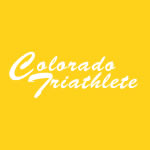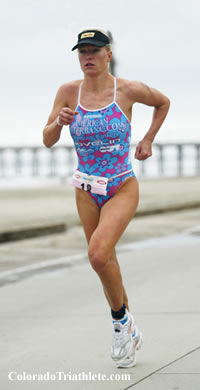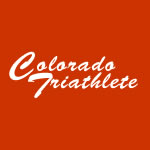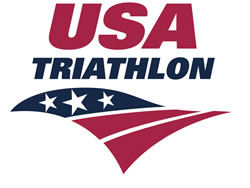An Interview with Boulder’s Newest World Champion
Interview and photos by Kristen McFarland
ISSUE #12, August/September 2001 – With a new attitude and a new coach, Siri Lindley has become almost unbeatable on the World Cup circuit, winning six of her last eight starts. Since barely missing a place on the U.S. Olympic Team for Sydney she has found an inner strength that has carried her to victory after victory. Two weeks before the World Championships in Edmonton she left all of the top ranked women in the world behind in the Toronto World Cup…
From the reports about Toronto, when you hit T2 you went out on the run and left everybody far behind. What were you feeling at that point in the race?
I would say probably the most important part of that race for me, or the greatest part of that race, was when I came out of the water. Because for the first time in my career I achieved one of my major dreams which has been to be able to swim well enough to actually be able to come out with those lead swimmers, you know, Barb Lindquist and Loretta Harrop and Nikki Hackett. So the fact that I had done that, I could have almost ended the race there and been the happiest girl around because that is something that I had been working so hard at for so long. So once I came out of the water with those guys I kind of knew that I was running pretty well in training and I knew that I would be fired up to get out on the run and do the very best that I could. So on the bike it was just a matter of staying up and not crashing like some of the others did. So by the time that I made it through the bike and got out on the run I think I was thinking ‘Okay, I know I can do this. I just need to go out. And, in my head, what I wanted to accomplish was to have the fastest run of the day no matter whether I was winning the race or coming in last. I just wanted to know that I had the fastest run split of the day because I kind of wanted to prove to myself that my running was on and that I would be ready for Worlds a couple weeks later knowing that I was running well. So I think when I did tear out of transition right after I got in there that was definitely my mission. Not to win the race, I wasn’t even thinking about winning the race I was just thinking about running as fast as I was capable of running and having the best race that I was capable of on that day.
There have been several races last year and this year where you have had the fastest run split of the day. Were you thinking that you were in a position to win because you often have that fastest split?
You know I’m sure that probably inside I knew that. But the way that I’ve been trying to race this year is just taking all of the focus off of trying to win, but just keeping my main focus just doing the very best that I can every step of the way throughout the race. And knowing that, I think that I started feeling a bit more confident that if I were able to do that, I would have a great shot at winning the race, or having the fastest run. That’s been kind of an important thing for me in every race, no matter what’s happening and where I am coming off the bike. I have been really trying to get that fastest run split in every race just so that I can have that in the back of my memory. Just to know that, if I am in that situation, if I’m jumping off the bike at Worlds with twenty other women, that I can say to myself, ‘Look, I should be the fastest one here, and this is what I have to do.’ I would never go out and say to myself while I’m in a race, ‘Siri, you’re always the fastest run split you should beat all these women.’ That’s just not at all the way I think. It’s more about that I know what I can do and its a matter of doing the very best that I can. And if I can do that, no matter where I finish , I’ll be happy with the effort that I put in. I guess in anything that’s the most important thing. Its not the winning or the losing, its the effort that you put in to something.
Since you have changed your focus off of thinking about the win, you have won most of your last World Cups. Do you think having that slightly different attitude has helped you in your racing?
I think absolutely. Because I don’t feel like I have any pressure on myself when I race now, which has been a huge change. And it’s funny because a lot of people say that once you start winning the pressure is going to be incredibly intense. But really it has taken the pressure off myself because ever since even before I won my first World Cup race I had changed my philosophy of racing. Where as last year, say before Olympic Trials, I just wanted so desperately to make the Olympic Team and to do this and to do that, and it was all about this end that I was shooting for. After that kind of all fell apart and I didn’t make the Olympic Team I went to train with my new coach and my new training partners…my attitude just became, ‘Okay, I’m in this because I love this sport and I want to become the best athlete and the best person that I’m capable of being through all this hard work.’ I just want to be the best I can be. That’s what its been all about from the day I started with him and all throughout this season. That’s so much less pressure than saying, ‘I need win this race or I need to make this team or I need to get this ranking.’ Once you put a label on something that you’re trying to accomplish, a label like that, it just puts too much pressure on you and you can’t perform as well.
You had an entry in to this Worlds because of what they are calling sort of a wild card entry because you had to drop out of the Shreveport race [the US qualifier for Worlds]. What happened at the Shreveport race?
I was injured going in to the race. Unfortunately in the World Cup in Rennes, France, which I ended up winning, thank God, I had had a plantar fasciitis problem which really wasn’t that big of a deal, except that it was pretty painful, but there was about a 400 meter run from the water to the transition area. It was a carpet over a bunch of rocks and I was running up the carpet and just jammed right on top of a rock that went straight through my plantar fascia and tore some of the fascia. So I made it through that race but for two weeks afterward I was unable to really walk at all and definitely not run. I had a problem on my hands and I was seeing a few doctors there. It was absolutely necessary for me to do the Shreveport race in order to make the World Championship Team. Of course I went and was totally determined to get through the race and do the best that I could and hopefully make the top six which would put me on the World Championship Team. It was horrible. A week before Shreveport I was trying to do some running so I didn’t lose everything, and in doing that everything was being affected. My kick in the swim, I couldn’t kick because I was getting knee stuff from compensating. So I had a bunch of problems going in just due to that injury. I got out on to the run and thought that I would just mentally be able to overcome it and be able to run through and do what I had to do. But my body just wasn’t going to go. So I had to drop out. Of course I was devastated because I thought, my God, I can’t believe I’m not going to make World Championships and I’m not going to have a shot at doing that race. Fortunately things turned out great in the end in that they [ITU officials] were recognizing my ranking, which I think was second in the world, and fortunately they let me in on that merit. But I really didn’t know until a couple of days before the race in Edmonton that I was actually going to be racing… I’m pretty sure that the ITU was pushing because they said to me they wanted to have all the best athletes at the World Championships racing. Therefore I think they felt that because at the time I was second that it wouldn’t be a great thing if I wasn’t racing. And thank God for that. I was absolutely thrilled that they allowed me to race. I had prepared myself for not racing, because I thought I’m not going to let myself get as devastated as I have in the past, like for the Olympics. It was kind of funny. Because I got a wildcard my number was 60. I was the very last number at the race. So my bike was miles down the transition area, and they were announcing all the people for the start of the race and I barely made the start because I was coming all the way from behind. But it was cool. You come into a race number 60 and it kind of motivated me even that much more to prove that I should be there and it’s good that they let me race. So that was definitely added incentive on the day of the race for sure.
At the Championships, did you feel like you had a good swim that day?
Actually no. I felt like my swim was pretty crappy. Unfortunately the first lap of my swim was just horrible and I think I lost a bit of time. It was a tight swim, definitely a difficult course. The second lap I was able to catch up to where I was in the lead chase pack. Of course it would have been much nicer to come out with the front leaders again in that race. But it just didn’t happen. And it ended up working out okay anyway. We biked really, really hard to try and catch up. And then they had the crash up at the front, which obviously was horrible for those guys, but it ended up with us having a better shot at catching them earlier on in the race.
Did you catch them when they had the crash?
No, it took us about a half a lap, or so to actually catch them. There were two girls, Kathleen Smet from Belgium and then two German girls, Joelle Franzmann and Christiane Pilz and the four of us just absolutely put our heads down and hammered away knowing that we needed to capitalize on this opportunity. I was pretty bummed because some of my friends were in the crash, and that’s always upsetting to see, but we were in the race and we thought now it’s our chance to go catch them. So we really for the first two laps were just balls out just going as hard as we could. When we caught up to them and formed the whole first pack it was still pretty important to ride hard and be working really hard out there because we still had Carol Montgomery behind us and some of the other runners. You don’t really want to get off the bike with those guys if you don’t have to.
You passed Michellie [Jones] right before you even exited the fence of T2. Did you feel at the beginning of the race that she was your toughest competition or did you feel like maybe Nikki or Loretta was your toughest competition?
That’s interesting because in a sense I knew that if I were looking at other people I would have thought Loretta was going to be my major competition because she is my training partner and in training she was just on fire for the couple of weeks before that race. So I knew that she was going to be the one to beat. But going in to every single race I try not to think about the people that I’m racing against. Instead I’m thinking my biggest competitor out there is going to be myself because I’m the only person that I have control over. It’s no sense in me worrying about what somebody else is going to do on race day. I’m just going to worry about tackling my own weaknesses, whatever they may be mentally on that day.
Post-race you said that you weren’t afraid to lay out all of what you had on the bike, and that you’d still be able to run fast. Was that a scary strategy for you or did you have that much confidence that you could kick on the whole bike and still run?
My coach is the most incredible coach in the world, I think, and our training is probably the hardest training that you could ever imagine for this distance in triathlon. But as miserable and hard as it can be in training, the greatest benefit of it for sure is that you get in a race and you know you can cover the distance and you know that you can go absolutely all out the entire way and survive it. It wasn’t necessarily a confidence like, ‘Oh, I’m great and I can do this.’ It’s just knowing. I knew the fitness that I had worked so hard at achieving and I knew that I had that fitness at that point. In every single race in July and August that was something that gave me the confidence to know that at least I have a chance. There were races when we’d have a big pack of girls and a lot of people wouldn’t be working and I would kind of go to the front. And I didn’t care if I pulled for the whole entire race because I knew what I’d done so many times in training. I’ve done 40-K time trials followed by an all out 10-K run and I know that I can handle that. Normally in drafting races the race is actually easier than the training that we’re doing. So I think its just a matter of knowing that I had done the work, that I’d felt that pain before.
You were named United States Olympic Committee Athlete of the Month for July. What significance does this have for you?
It’s funny, all these things. It’s so amazing. My mom tonight just made this photo album up with all these pictures of all of my races and the wins and stuff like that. I kind of looked at it and I’m like, ‘My God, was this me? Did I do these things?’ I don’t think I’ve actually taken the time to think about what’s happened over this season because I’ve been go, go, go. It really hit me and got me kind of emotional to see because it was the first time that I really thought about what had happened and at the same time I thought about that as well [the award] and that’s huge. Who would have ever dreamed that I would be accomplishing the things that I did this summer? I would never have believed that of myself. I know that’s pretty lame, but I wouldn’t have. So it’s just the most amazing feeling in the world and I feel blessed in a way. Blessed that I have had the determination to follow this program and really stick my head in there and go for it and never give up. And my dreams have come true. It’s incredible to actually see the rewards of all your hard work. I hope that everyone gets the opportunity at some point, the people that are working out there day after day and putting their heart and soul into it like I have, I hope that they can come up with an accomplishment of whatever sort that makes them feel the way that I do now because it’s an incredible, fulfilling feeling.
Interestingly enough, so many of us who thought you would make it to Sydney, we’re all thinking that perhaps the fates are pointing towards Athens [2004] instead. Are you looking towards Athens?
I’m trying not to. Right now I’m kind of making every single race the most important race there is. I’ll enter Cancun in November, and right now that is my main focus. I think I’m going to keep it that way all the way up until 2004. If on that day I make the Olympic Team and I get to go to Athens then I’ll treat that race just as I have every other one this year. I’m not going to make the same mistake I made last year where I said I’ve got to make the Sydney Olympics, it’s do or die, it means everything to me, and if I don’t make it who knows I’ll just die. The effects of that when it doesn’t happen are just really devastating and I refuse to go through that again. If I can continue to work as hard as I have been and continue to perform and make things happen then hopefully that will just be a natural progression. I would certainly love to be there and would love to have a shot at representing my country and making them proud.
You already make us proud, Siri.















